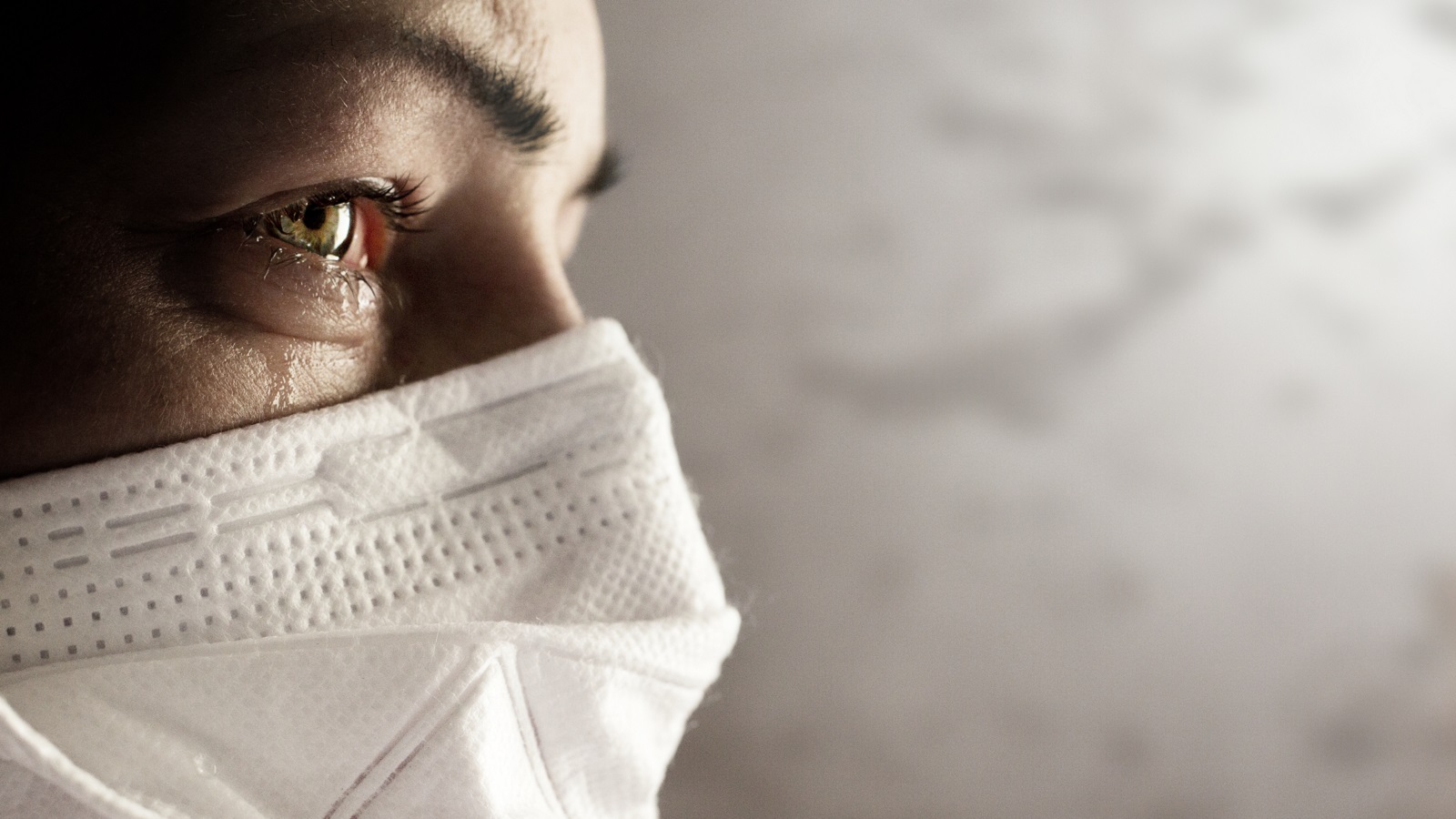“There was so much information out there, I didn’t know what to do. I just wish someone had convinced me to get the vaccine,” said a COVID-19 patient we cared for a few days after he had been transferred to the intensive care unit (ICU). Each day, we slowly turned up his oxygen. Each day, he could only manage a few words at a time as the virus, that has come to dominate all of our lives, ravaged his lungs. Every patient we have had in the ICU with COVID-19 in the last few months has been unvaccinated.
Our team developed a practice of asking our unvaccinated patients why they did not get the vaccine. Answers like that of our aforementioned patient were frustratingly common. It was difficult to watch patients we had gotten to know fight for their lives in the hospital and then walk home past bars packed with unmasked patrons. It often felt like we were living in two different worlds.
For most physicians working in ICUs, the decision to get vaccinated was not complicated: how can you hold a patient's hand as they approach death, experience their suffering, yet not want to get vaccinated against this heinous disease? But for people living out in the world, this wasn’t the image they saw. Outside of the hospital, the world was continuing almost normally, and the patients who did get sick with COVID-19 disappeared into the hospital, many times never to return.
Unfortunately, there are few highly effective treatments for severe COVID-19. When patients come to the ICU, we use evidence-based medications, slowly increase oxygen support, and put them on their stomachs to improve their oxygen levels. However, the best treatment remains the one we can't give them: a vaccine 6 weeks prior to admission. COVID-19 vaccines have been repeatedly shown to be both safe and highly effective at preventing hospitalization. Despite some protection from relatively high community vaccination rates in Massachusetts, COVID-19 is still deadly to those who have not been vaccinated themselves.
Physicians’ personalized approach to increase vaccination rates
As we grew more and more frustrated by the toll COVID was taking on our community, we decided to respond in the only way we knew how - by bringing our experience to our patients. We used some of the functions built into EPIC, our hospital’s electronic medical record, to generate a list of our unvaccinated primary care patients. Then we called them, one-by-one.
Though our patients had heard about the vaccine in the infinite forms of media available to them, they often had not heard from a doctor they have a personal relationship with, a doctor they hopefully trust. As we called our patients - most of whom had not seen a medical provider in many months due to the pandemic - we checked in on how they were doing, reminded them about missed pap smears and upcoming colonoscopies, and we asked them about the vaccine.
Contributing factors behind vaccine hesitancy
Vaccine hesitancy is present across all states and counties, but it also occurs at higher rates in Black Americans, in those with lower educational attainment, and in individuals from lower socioeconomic backgrounds. We have the privilege to care for a diverse patient population at Cambridge Health Alliance (CHA) with about 40% non-white and many unhoused patients. We also serve a refugee and immigrant population with patients hailing from everywhere from Haiti to Bangladesh.
Recent immigrants face additional challenges when it comes to COVID vaccination, including limited English proficiency, minimal to no insurance coverage, poor access to transportation, and a foreign medical system to navigate. Many of these individuals are especially susceptible to exposure to COVID because they live in multi-family homes or work essential jobs.
While some unvaccinated individuals highlighted in the media are vociferous “anti-vaxxers,” our patients fall into a different category. Our patients are overwhelmed by the mountain of information and misinformation available in a language they do not feel comfortable speaking, let alone reading. With all of these factors in mind, we felt it was especially important to personally reach out to our patients.
Counteracting misinformation and information overload
Much of the misinformation driving vaccine hesitancy stirs negative emotions, such as fear of the pharmaceutical industry or confusion about the latest recommendation from the Centers for Disease Control and Prevention (CDC). Fear and confusion can both decrease willingness to engage in preventive health behaviors. We sought to counteract these negative emotions by building upon foundations of trust that have already been established, reinforcing the self-efficacy of our patients, and activating positive emotions related to protecting themselves and their community.
We also engaged with our patients by sharing our stories. Narrative evidence has been shown to be particularly effective at motivating patients to engage in healthy behaviors. Despite their rarity, stories of harm from immunizations can have a significant impact on patients’ willingness to get a vaccine. However, accounts of patients from physicians can have the opposite effect. For all of these reasons, we believed communicating our deep care and commitment to our patients with personal phone calls would have a beneficial impact beyond just the COVID-19 vaccine.
After our conversations, many patients did decide to get the vaccine. Some were initially paralyzed with fear, but our advice helped tip them over the edge of inaction. Others believed they could not get vaccinated because they had chronic conditions such as heart failure or asthma, and a few thought that the vaccine could give them COVID. These conversations were uplifting as we connected with our patients and gave them confidence to protect themselves against the virus.
Some conversations were much more difficult. One patient was insistent that Bill Gates wanted to kill Americans and was carrying out his plan with the vaccine. Another believed COVID was an invention of the government to control the US population. Fighting misinformation is hard, and some of these conversations were especially heartbreaking.
After several such rejections it could feel like the calls were pointless. But every patient, even the ones who vehemently disagreed with us, expressed gratitude that we called. Whether our patients got vaccinated or not, they were reassured that their doctor had their best interests at heart.
**Feature photo obtained with standard license on Shutterstock.
Interested in other articles like this? Subscribe to our newsletter
Interested in contributing to Perspectives in Primary Care? Review our submission guidelines

Preston Williams, MD, is an Internal Medicine Resident Physician at Cambridge Health Alliance and Clinical Fellow at Harvard Medical School. He attended medical school at the Texas A&M College of Medicine and completed his undergraduate degree at Case Western Reserve University. He is passionate about primary care and addressing health and socioeconomic disparities in underserved communities.
 Lily Gage, MD, is an Internal Medicine Resident Physician at Cambridge Health Alliance and Clinical Fellow at Harvard Medical School. She earned her medical degree from Emory University. Lily is interested in primary care, infectious disease, and addressing health care disparities, especially among Spanish-speaking immigrants.
Lily Gage, MD, is an Internal Medicine Resident Physician at Cambridge Health Alliance and Clinical Fellow at Harvard Medical School. She earned her medical degree from Emory University. Lily is interested in primary care, infectious disease, and addressing health care disparities, especially among Spanish-speaking immigrants.
 Lakshman Swamy, MD, MBA, is a Pulmonary/Critical Care Physician at Cambridge Health Alliance and Instructor in Medicine at Harvard Medical School. He completed his Internal Medicine and Pulmonary & Critical Care Medicine training at Boston Medical Center and the VA in Boston. He is interested in addressing the delivery of care as well as working environments to reduce burnout and improve patient outcomes. In his spare time, he is designing Critical Care: The Game—a card game about ICU medicine!
Lakshman Swamy, MD, MBA, is a Pulmonary/Critical Care Physician at Cambridge Health Alliance and Instructor in Medicine at Harvard Medical School. He completed his Internal Medicine and Pulmonary & Critical Care Medicine training at Boston Medical Center and the VA in Boston. He is interested in addressing the delivery of care as well as working environments to reduce burnout and improve patient outcomes. In his spare time, he is designing Critical Care: The Game—a card game about ICU medicine!
- Share
-
Permalink


